
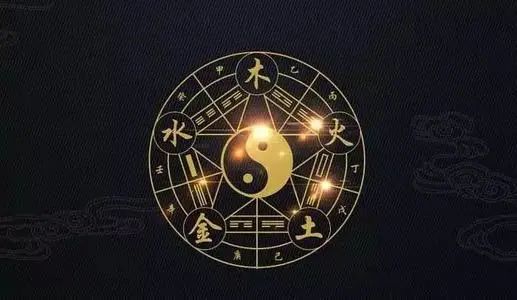
The order of the generating cycle of the Five Elements is: Metal generates Water, Water generates Wood, Wood generates Fire, Fire generates Earth, Earth generates Metal.
The order of the overcoming cycle of the Five Elements is: Metal overcomes Wood, Wood overcomes Earth, Earth overcomes Water, Water overcomes Fire, Fire overcomes Metal.
Generating Cycle of the Five Elements:
Metal generates Water, Water generates Wood, Wood generates Fire, Fire generates Earth, Earth generates Metal. Metal generates Water: Metal melts to create Water; Water generates Wood: Water nourishes and promotes Wood; Wood generates Fire: Wood is dry and warm, generating Fire; Fire generates Earth: Fire burns Wood to create Ash, which is Earth; Earth generates Metal: Earth contains minerals that produce Metal.
Meaning of the Generating Cycle:
Metal generates Water—because the subtle Yin energy (Metal energy) is warm and flowing, Metal relies on Water to be born, and melted Metal can also become Water, hence Metal generates Water.
Water generates Wood—because Water is moist and allows trees to grow, thus Water generates Wood.
Wood generates Fire—because Wood is warm, Fire is hidden within, and Fire is generated by drilling Wood, thus Wood generates Fire.
Fire generates Earth—because Fire is hot, it can burn Wood, and when Wood is burned, it turns to Ash, which is Earth, thus Fire generates Earth. Earth generates Metal—because Metal needs to be hidden in stone, attached to mountains, nourished by moisture, and formed by Earth into mountains, where there must be stones, hence Earth generates Metal.
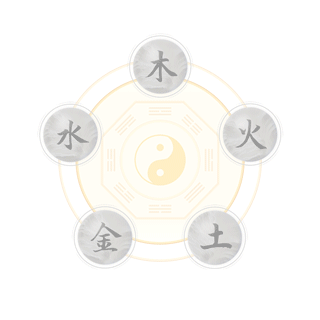
Overcoming Cycle of the Five Elements:
Metal overcomes Wood, Wood overcomes Earth, Earth overcomes Water, Water overcomes Fire, Fire overcomes Metal.
Meaning of the Overcoming Cycle: This is due to the nature of Heaven and Earth, where the many overcome the few, hence Water overcomes Fire; the subtle overcomes the solid, hence Fire overcomes Metal; the strong overcomes the weak, hence Metal overcomes Wood; the concentrated overcomes the dispersed, hence Wood overcomes Earth; the solid overcomes the void, hence Earth overcomes Water.
The strong overcomes the weak, hence Metal overcomes Wood; because tools can cut down trees;
The concentrated overcomes the dispersed, hence Wood overcomes Earth; because trees can stabilize collapsing soil;
The solid overcomes the void, hence Earth overcomes Water; because dams can stop the flow of water;
The many overcome the few, hence Water overcomes Fire; because a great flood can extinguish flames;
The subtle overcomes the solid, hence Fire overcomes Metal; because intense fire can melt metals.
Metal can generate Water, but too much Water sinks Metal; Water can generate Wood, but too much Water shrinks Wood; Wood can generate Fire, but too much Fire burns Wood; Fire can generate Earth, but too much Earth obscures Fire; Earth can generate Metal, but too much Metal weakens Earth.
Metal can overcome Wood, but too much Wood breaks Metal; Wood can overcome Earth, but too much Earth breaks Wood; Earth can overcome Water, but too much Water erodes Earth; Water can overcome Fire, but too much Fire scorches Water; Fire can overcome Metal, but too much Metal extinguishes Fire.
When Metal is weak and meets Fire, it will surely melt; when Fire is weak and meets Water, it will surely be extinguished; when Water is weak and meets Earth, it will surely be blocked; when Earth is weak and meets Wood, it will surely collapse; when Wood is weak and meets Metal, it will surely be cut.
Strong Metal needs Water to temper its edge; strong Water needs Wood to ease its force; strong Wood needs Fire to release its essence; strong Fire needs Earth to contain its flame; strong Earth needs Metal to transform its stubbornness.
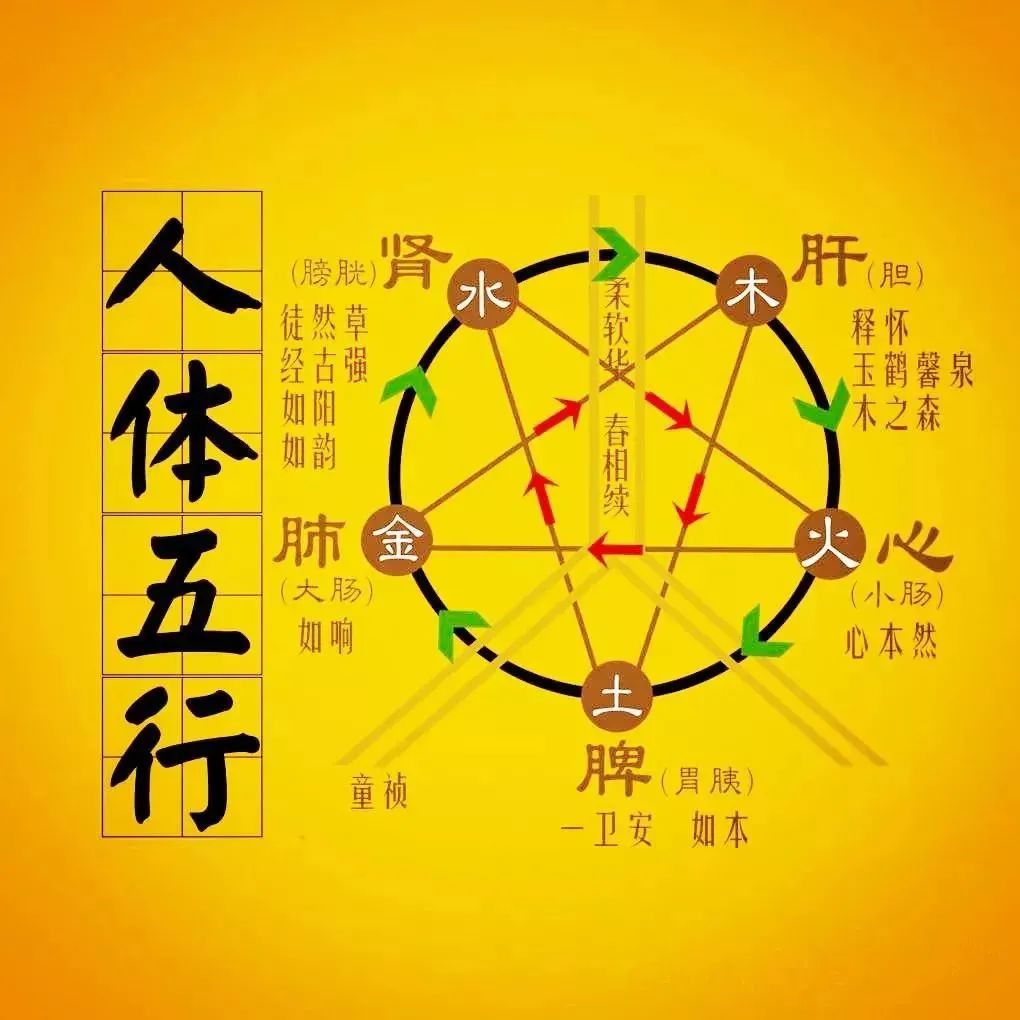
Correspondence of the Five Elements and the Human Body
The Five Elements are Wood, Fire, Earth, Metal, and Water, representing five attributes, which are abstract concepts and should not be understood as specific entities. Five is a universal number, as seen in five fingers, five senses, five organs, five tastes… many things can be categorized into five types.
In Traditional Chinese Medicine (TCM), the Five Elements describe the functions and relationships of the five organ systems (Liver, Heart, Spleen, Lung, Kidney), noting that these organs are also functional concepts (known as zangxiang) and are not limited to the specific anatomical organs.
Wood – growth, flexibility, gentleness, smoothness; Fire – warmth, rising, brightness; Earth – transformation, bearing, receiving; Metal – cleanliness, purification, convergence; Water – coolness, nourishment, downward movement.
Things of the same element resonate with each other, but excess can be harmful. For example, anger harms the Liver. The case of Fan Jin winning the imperial examination is a typical example of excessive joy harming the Heart. Similarly, an appropriate amount of sweetness can nourish the Spleen, but excessive sweetness can stagnate the Spleen.
Generating and Overcoming Relationships of the Five Elements
Generating refers to one thing promoting, assisting, and nurturing another (for convenience of discussion, the generator is called the mother, and the generated is called the child). Overcoming refers to one thing suppressing and restricting the growth and function of another. Generating and overcoming are normal phenomena that exist universally in nature. Without generating, there is no development; without overcoming, there is excess that can cause harm. Both are important; do not think that generating is good and overcoming is bad. Gigantism is a case of growth lacking restraint.
Generating and overcoming are inseparable aspects. Without generating, there is no occurrence and growth of things; without overcoming, there cannot be balance and coordination in the development and change of things.
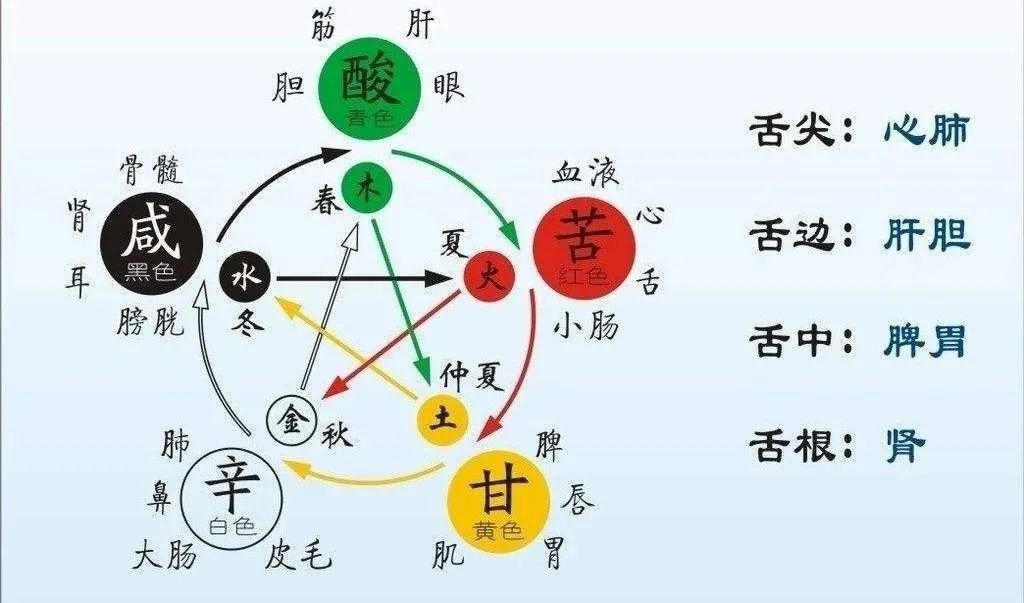
Relationships Among the Five Organs
(1) Generating relationships among the Five Organs: The Liver generates the Heart, which is Wood generating Fire, as the Liver stores blood to nourish the Heart; the Heart generates the Spleen, which is Fire generating Earth, as the Yang energy of the Heart can assist the Spleen; the Spleen generates the Lung, which is Earth generating Metal, as the Spleen transforms the essence of food and water to benefit the Lung; the Lung generates the Kidney, which is Metal generating Water, as the clear energy of the Lung allows the fluids to descend to nourish the Kidney; the Kidney generates the Liver, which is Water generating Wood, as the Kidney stores essence to nourish the Yin blood of the Liver, etc.
(2) Overcoming relationships among the Five Organs: The clear and descending energy of the Lung (Metal) can suppress the Yang excess of the Liver (Wood), hence Metal overcomes Wood; the Liver (Wood) can regulate and relieve the stagnation of the Spleen (Earth), hence Wood overcomes Earth; the Spleen (Earth) can prevent the flooding of the Kidney (Water), hence Earth overcomes Water; the Kidney (Water) can restrain the excessive Yang of the Heart (Fire), hence Water overcomes Fire; the Yang heat of the Heart (Fire) can restrain the excessive clarity of the Lung (Metal), hence Fire overcomes Metal.
However, it must be pointed out that the theory of the Five Elements is limited in explaining the balance among the organs. This is because the correspondence of the Five Organs to the Five Elements only extracts certain characteristics of the organs, and the Five Elements cannot explain all phenomena in the world, only partial relationships.
Mutual Influence of Organ Pathologies
(1) Maternal disease affecting the child: The mother organ becomes ill first, then affects the child organ.
(2) Child disease affecting the mother: The child organ becomes ill first, then affects the mother organ. In this case, the condition is generally more severe.
(3) Mutual reinforcement: This means excessive overcoming. It may be due to the overcoming organ being too strong, or the overcome organ being too weak, leading to a more severe condition.
(4) Mutual insult: This means insufficient overcoming, leading to being overcome instead. It may be due to the overcome organ being too strong, or the overcoming organ being too weak.
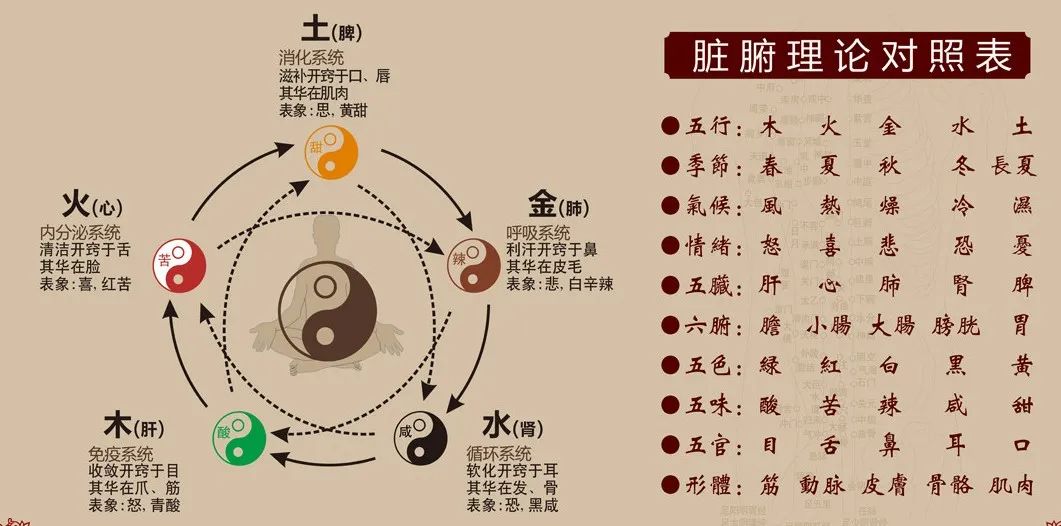
Relationship Between the Five Organs and the Seasons
Wood corresponds to Spring, Fire corresponds to Summer, Earth corresponds to Late Summer, Metal corresponds to Autumn, and Water corresponds to Winter. In each season, the corresponding organ bears a heavier burden, while the organ that generates it receives nourishment. For example, liver diseases are more common in Spring because Wood generates Fire, placing a heavier burden on the Liver. At the same time, because Wood generates Fire (Heart), the mood is often more cheerful.
Relationship Between the Strength of the Organs and Personality
In terms of personality, if the generating and overcoming relationships of the Five Elements are unbalanced, excessive Fire without restraint leads to impatience and lack of cultivation. Excessive Water without restraint leads to cleverness but weak will and restlessness. Excessive Wood without restraint leads to strong emotions and kindness. Excessive Metal without restraint leads to efficiency and sharpness. Excessive Earth without restraint leads to kindness and a preference for tranquility. Of course, even in such cases, through self-control, one can still achieve personality balance.
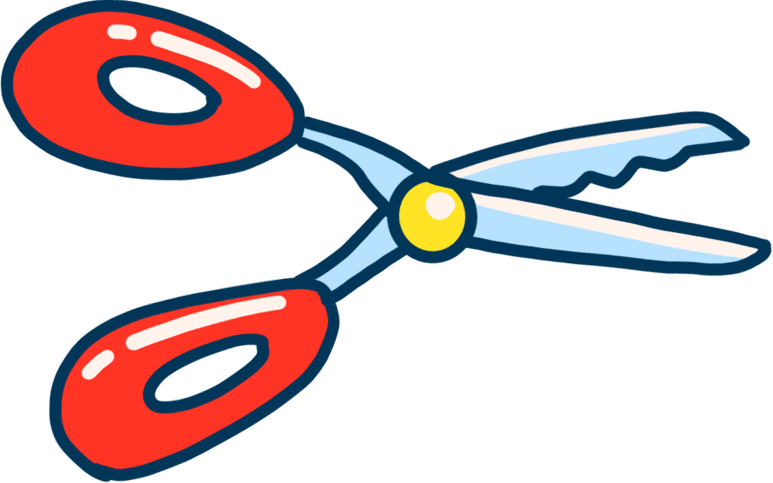


Copyright Notice: This article is for educational exchange only, sourced from the Tour Guide Qualification Examination Home. Thanks to the original author’s hard work; if there are any errors in source attribution or issues regarding reproduction and copyright, please inform us, and we will delete it immediately. Thank you!
